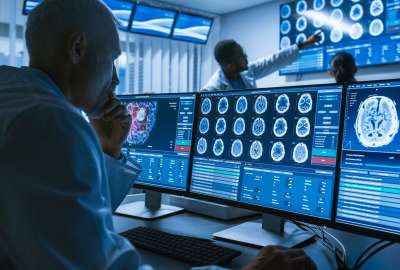Dementia is a challenging condition that affects memory, cognitive function, and daily activities. At Three Rivers Concierge Medicine, Dr. Kathryn Shoemaker offers comprehensive care for patients with dementia, focusing on early diagnosis, treatment, and ongoing management. With a holistic approach to dementia care, we provide not only medical treatment but also emotional and practical support for patients and their families.

Dementia Care Q & A
What is Dementia?
Dementia is an umbrella term for various cognitive impairments that affect memory, thinking, and behavior. It is often caused by brain cell damage that leads to progressive decline in mental functions. Common symptoms of dementia include:
- Memory loss
- Disorientation and confusion
- Difficulty with communication and problem-solving
- Mood swings, including anxiety or depression
- Changes in personality and behavior
While the severity and progression of dementia can vary, it is crucial to seek medical advice early to manage the condition effectively and improve the quality of life.
What Causes Dementia?
Dementia is caused by damage to nerve cells in the brain, and the underlying conditions responsible can vary. Some common causes include:
- Alzheimer’s disease: The most common cause of dementia, characterized by the buildup of abnormal proteins in the brain.
- Lewy body dementia: A type of dementia marked by abnormal protein deposits in brain cells.
- Vascular dementia: Results from reduced blood flow to the brain due to conditions like stroke.
- Frontotemporal dementia: A less common form of dementia that involves the progressive degeneration of the frontal and temporal lobes of the brain.
In some cases, dementia can be linked to treatable conditions like hormonal imbalances, metabolic disorders, or infections. Early intervention is key to addressing these causes.
How is Dementia Treated?
While there is no cure for most forms of dementia, treatment focuses on slowing the progression of symptoms and improving the quality of life for patients. At Three Rivers Concierge Medicine, Dr. Shoemaker offers both conventional treatments and alternative approaches. Treatment options may include:
- Medications: Drugs such as cholinesterase inhibitors or memantine can help improve cognitive function or slow symptom progression.
- Therapeutic interventions: Non-pharmacological treatments like music therapy, art therapy, and cognitive therapies help patients manage daily tasks and emotions.
- Lifestyle changes: Modifying the environment to reduce stress and ensuring a structured routine can greatly benefit individuals with dementia.

Dr. Shoemaker is also trained in the Bredesen Protocol, a holistic approach to dementia care that includes personalized treatment plans, cognitive assessments, and lifestyle modifications aimed at improving brain health.
How Can Families Support Loved Ones with Dementia?
Supporting someone with dementia can be challenging. Dr. Shoemaker works closely with families to provide emotional and practical support, offering guidance on how to communicate effectively with loved ones, create a safe environment, and manage symptoms. Coping strategies for caregivers are also an essential part of the dementia care process, and ongoing education helps families navigate the journey ahead.


















